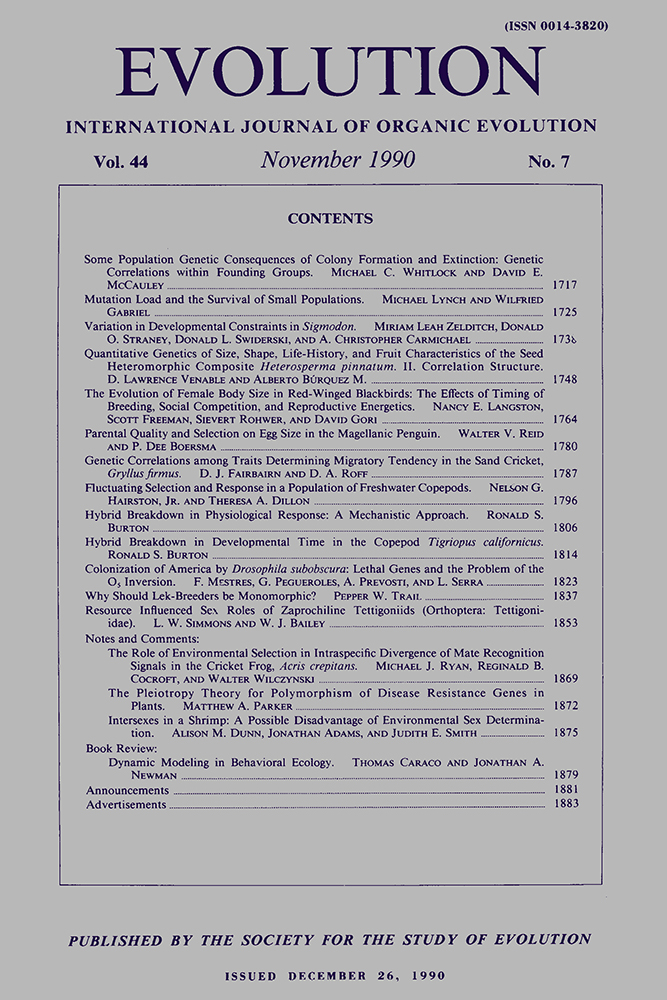PARENTAL QUALITY AND SELECTION ON EGG SIZE IN THE MAGELLANIC PENGUIN
Abstract
We examined the relative contributions of egg size and parental quality to hatching success, fledging success, and chick growth in the Magellanic penguin (Spheniscus magellanicus) be exchanging clutches between nests to reduce the covariation between egg and parental factors. Among control nests, fledging success increased slightly with egg size. However, the effect of egg size independently of parental quality was limited to an influence on chick mass and size for the first 10 days post-hatching. In contrast, attributes of the parents influenced nesting success and chick size at fledging, independently of the egg size actually raised. We suggest that the common occurrence of a positive phenotypic correlation between egg size and fledging success is due to two factors: (1) adults laying large eggs tend to be of higher quality; and (2) to the extent that egg size does influence early survival independently of parental quality, the effect on survival is due to a maternal effect on egg composition rather than an inherent effect of egg size.




